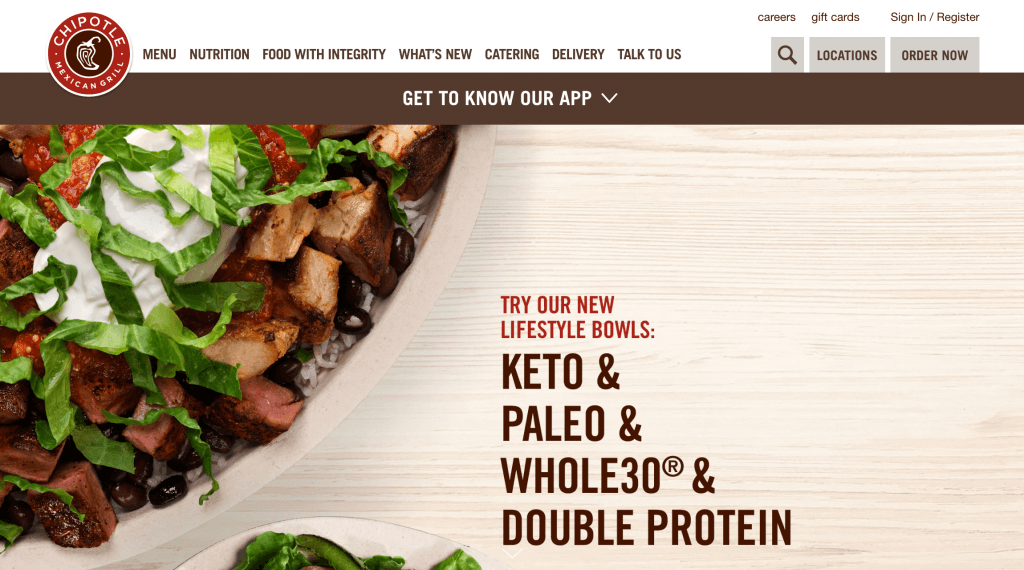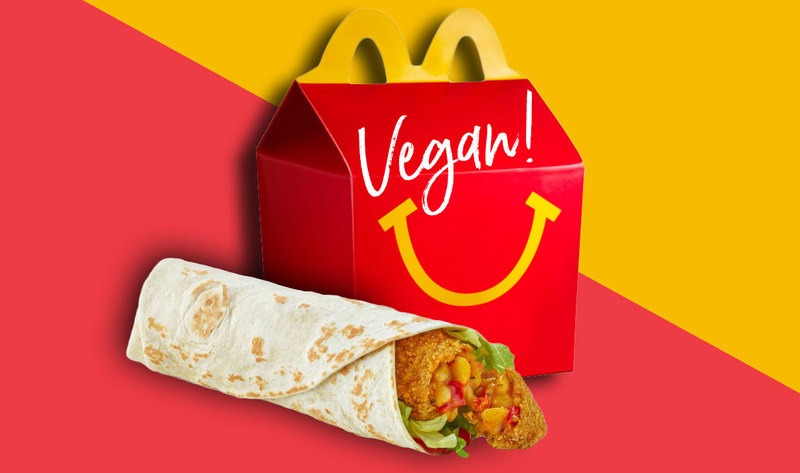The Rise of the Lifestyle Diet
As we dive head-first into 2019, many people have set goals to eat healthy or lose weight and have begun a variety of diets. More than ever before, fast food and quick-serve/fast-casual chains have seen the value in offering on-the-go options for their keto customers, Whole30-doers and paleo patrons.
With 80% of New Year’s resolutions failing by February1, the Chipotle-style restaurants of the world are here to help.
A quick Google search for “best diets of 2019” returns various guides for Whole30, Mediterranean, DASH, paleo, vegan, Nordic, keto, Weight Watchers, Pegan (paleo-vegan), anti-inflammatory…the list goes on. As the general population grows more concerned with their overall health and wellness — and largely having a greater understanding that what works for one person may not for another — they find there’s not a one-size-fits-all answer to adding a “diet” to your menu.
What we think:
As diets become lifestyles, chains that already incorporate customization on their menus have an easier time accommodating specific dietary desires. That being said, this opens a whole new door to mass-acceptance of healthier, nutrient-rich demand when dining out in quick-serve situations. You used to only find this type of dietary accommodation around LA or New York, maybe San Fran or Seattle, but never before has this level of dietary acceptance been made across the nation.
As dietary standards rise, restaurants — and therefore manufacturers — have no choice but to adapt alongside their customers.
A few chains incorporating specialized diets on their menus2:
- Chipotle (keto, paleo, Whole30, double-protein)
- Roti Modern Mediterranean (Gluten-Free Rice Plate, Keto Salad, Vegan Pita)
- Chick-fil-A (paleo, keto or Whole30-friendly options: grilled nuggets and superfood salad, spicy southwest salad, grilled market salad)
- In-N-Out Burger (protein-style paleo burger)
- Taco Bell (keto options, highly customizable menu)
What’s next:
We pose the question: are many of these diets even a fad? They’ve been around for some time now, only growing in popularity. The differences in today’s “fad diets” and those of the 90s are whole foods, higher fat, and focus on origin of food, rather than low-fat shakes and non-fat cheese.
Used-to-be “alternative lifestyles” are now mainstream and restaurants are finally recognizing them as such. McDonald’s UK now offers vegan and vegetarian Happy Meal options3, and McDonald’s Sweden recently launched their first vegan Happy Meal4 — the McFalafel. Add those to the list of restaurants already offering options like the Impossible Burger or Beyond Meat, and we will see vegan options on more menus in 20195.
Keep an eye out for greater transparency in food origin, lower sweetness levels6, and values at the center of purchasing decisions for these large chains. Dining options that have previously limited their stake in these issues are getting pressure from consumers to adapt, and, as a result, these chains will likely turn to manufacturers to help accommodate these requests.
[1] “80% of New Year’s resolutions fail by February — here’s how to keep yours.” Business Insider. January 2017.
[2] “8 Fast Food Joints With Surprisingly Great Paleo and Whole30 Meals.” Thrillist. January 2019.
[3] “McDonald’s UK Launches Its First Vegan Happy Meal.” VegNews. January 2019.
[4] “McDonald’s Just Launched Its First Vegan Happy Meal In Sweden.” Delish. January 2019.
[5] “The year of the vegan.” The Economist. January 2019.
[6] “10 Macro Trends Impacting Food And Beverage Innovation In 2019.” Forbes. January 2019.


